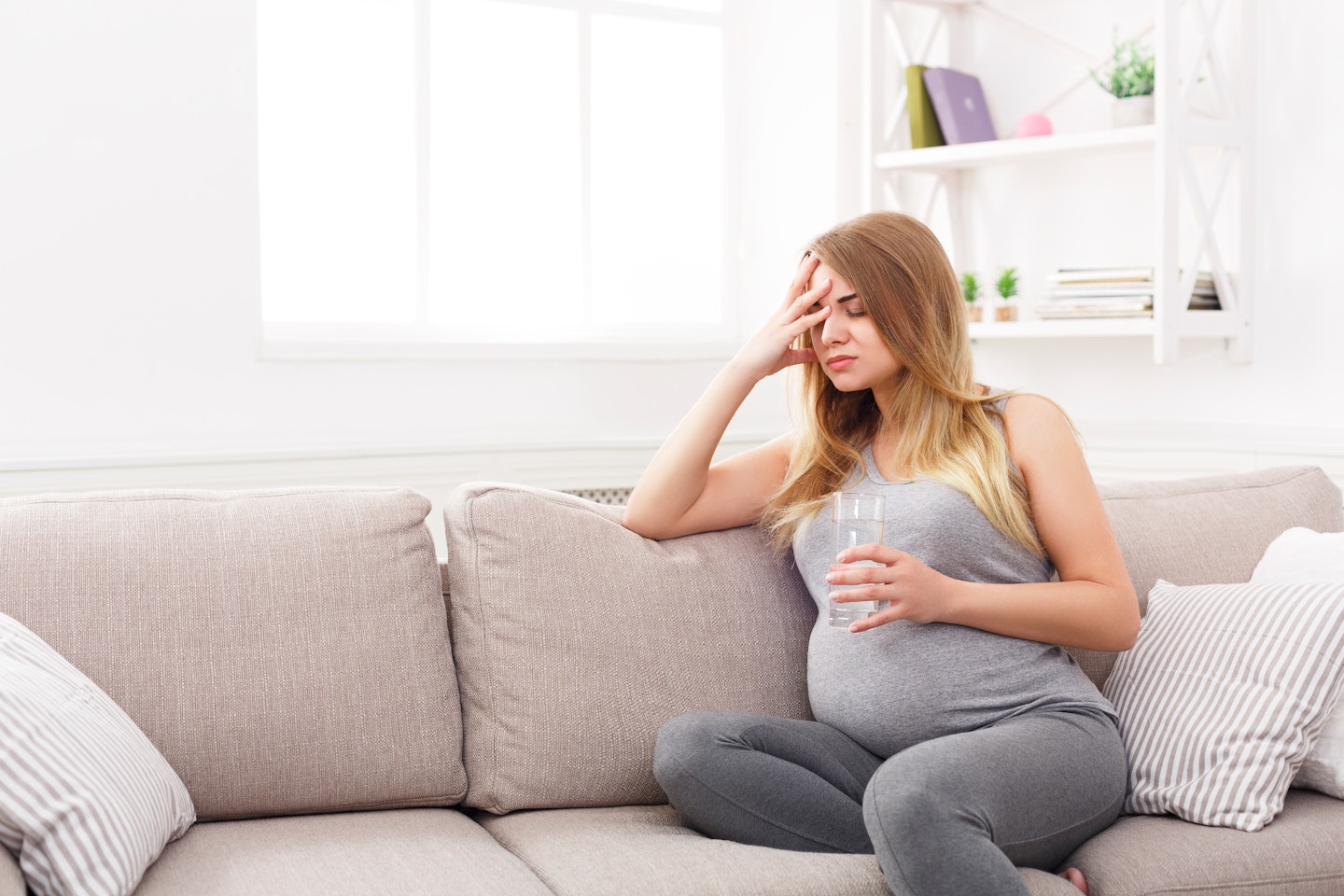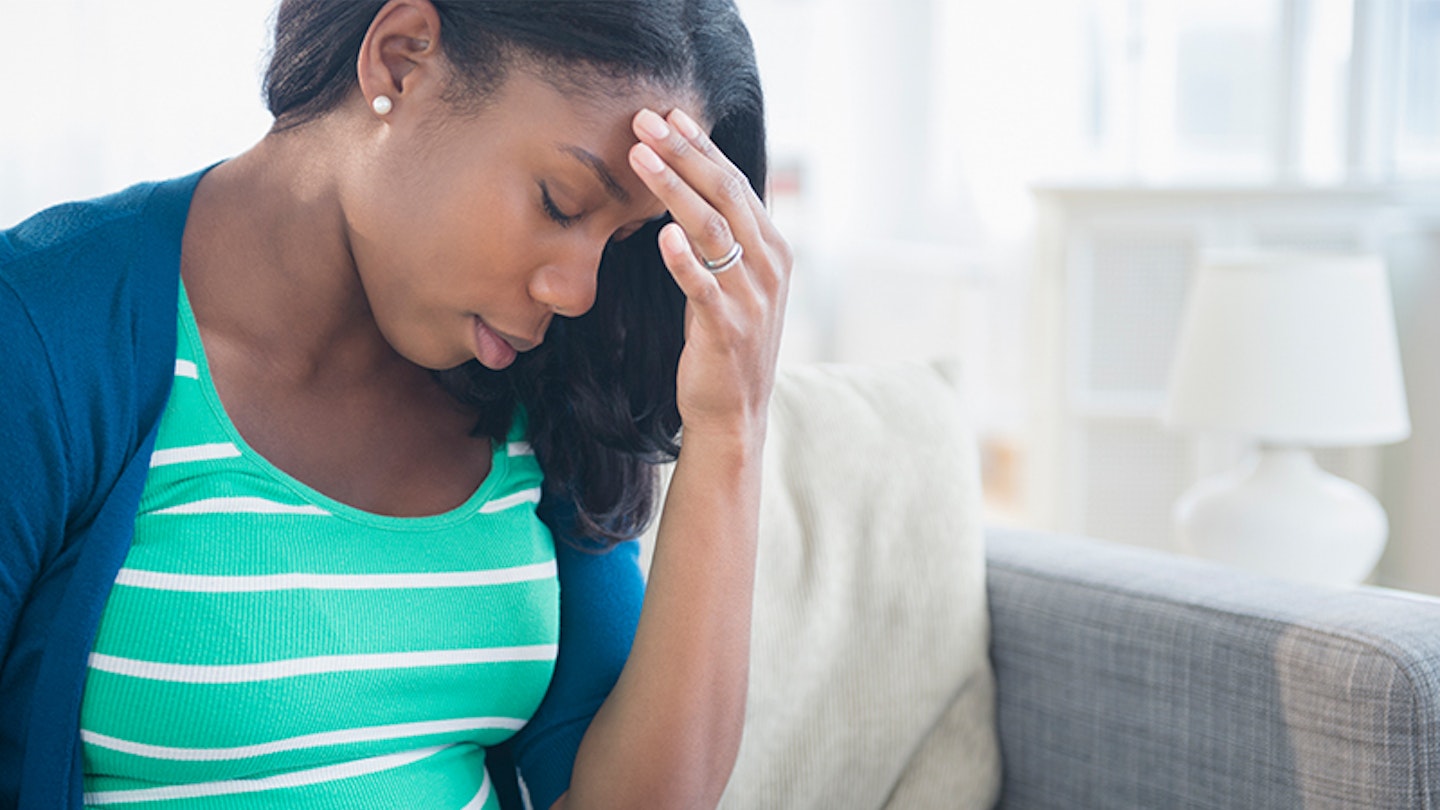For a lot of women, pregnancy is fraught with unwanted side effects. Unrelenting heartburn, morning sickness and headaches... far from the glowing, vibrant pregnancy we'd once envisioned (ha!). A lot of these side effects are to do with the surge of certain hormonesin the body.
If you're experiencing headaches in pregnancy and are feeling a bit concerned, read on to find out the causes and treatments.
What causes headaches in pregnancy?
Headaches are most common in your first trimester and third trimester. The NHS says headaches are most common in early pregnancy and usually improve or stop completely during the last six months.
As your body will be experiencing many hormonal changes in your first trimester, this can cause more frequent headaches than normal. Headaches can also be caused by lack of sleep, stress, low blood sugar levels and dehydration.
When should I call a doctor or midwife about a headache in pregnancy?
You should contact your midwife or doctor if you have a very bad headache or one that won't go away.
This may be a symptom of pregnancy-induced hypertension, a type of high blood pressure which usually develops after 20 weeks of pregnancy.
Headaches during your third trimester could also be an indication of pre-eclampsia in pregnancy. Pre-eclampsia can lead to serious problems if it's not looked at, so you should immediately check with your midwife if you see swelling in your face, hands, and feet, and have pain under your ribs.

How to treat headaches in pregnancy
If you're suffering from a mild headache, you can take paracetamol to help treat it. Paracetamol is the recommended painkiller for many pregnant women as it has no harmful effects to you or your baby.
You should steer clear of painkillers that contain added caffeine, codeine or are anti-inflammatory, such as ibuprofen or aspirin.
If you do not experience any relief from the above advice or the headaches are getting more severe and intense, contact your midwife.
Preventing headaches in pregnancy
To try and prevent headaches from happening in the first place, there are a few steps that you can take. These include:
• Eating balanced meals
• Drinking plenty of fluids to prevent dehydration
• Getting enough sleep
• Resting and relaxing whenever you can – you could try a pregnancy yoga class
Migraines in pregnancy
Pregnant women can also experience migraines. A migraine is a type of headache that feels much stronger than regular headaches and feels like a throbbing or pounding pain. It can make people feel sick and feel sensitive to light or sound.
Before or during a migraine, you may:
• See flashing lights or a change in your vision
• Problems with speech
• Pins and needles feeling in their arms and legs
If you've never had a migraine, you should contact your midwife or doctor as conditions such as pre-eclampsia can be similar to migraine so it's worth getting checked over to be safe.
If you've experienced migraines before becoming pregnant, you should chat with your midwife or doctor, especially if you were previously taking medication as this may not be suitable during pregnancy.
Treating a migraine in pregnancy
To treat or relieve the symptoms of a migraine, try the following:
• Put a warm facecloth on your eye and nose area, if it is a sinus headache
• Put a cold pack on the back of your neck, taking a bath or using a heat pack, if it is a tension headache
• Try a neck and shoulders massage

Preventing migraines in pregnancy
The best way to prevent experiencing migraines while pregnant is to keep an eye out for the triggers that cause them and avoiding them going forward. This could be anything from stress to lack of sleep or even certain foods.
The following foods can trigger a migraine which you should look out for:
• Chocolate
• Yoghurt
• Peanuts
• Bread
• Sour cream
• Preserved meats
• Aged cheese
• Monosodium glutamate (MSG)
• Caffeine (withdrawal from)
You should also follow the same steps for preventing a headache including drinking plenty of water and eating a healthy diet.
Some women also try acupunture as a way for helping with migraines. This is generally safe to have when you’re pregnant but you should talk to your midwife or GP before looking at booking a session.
